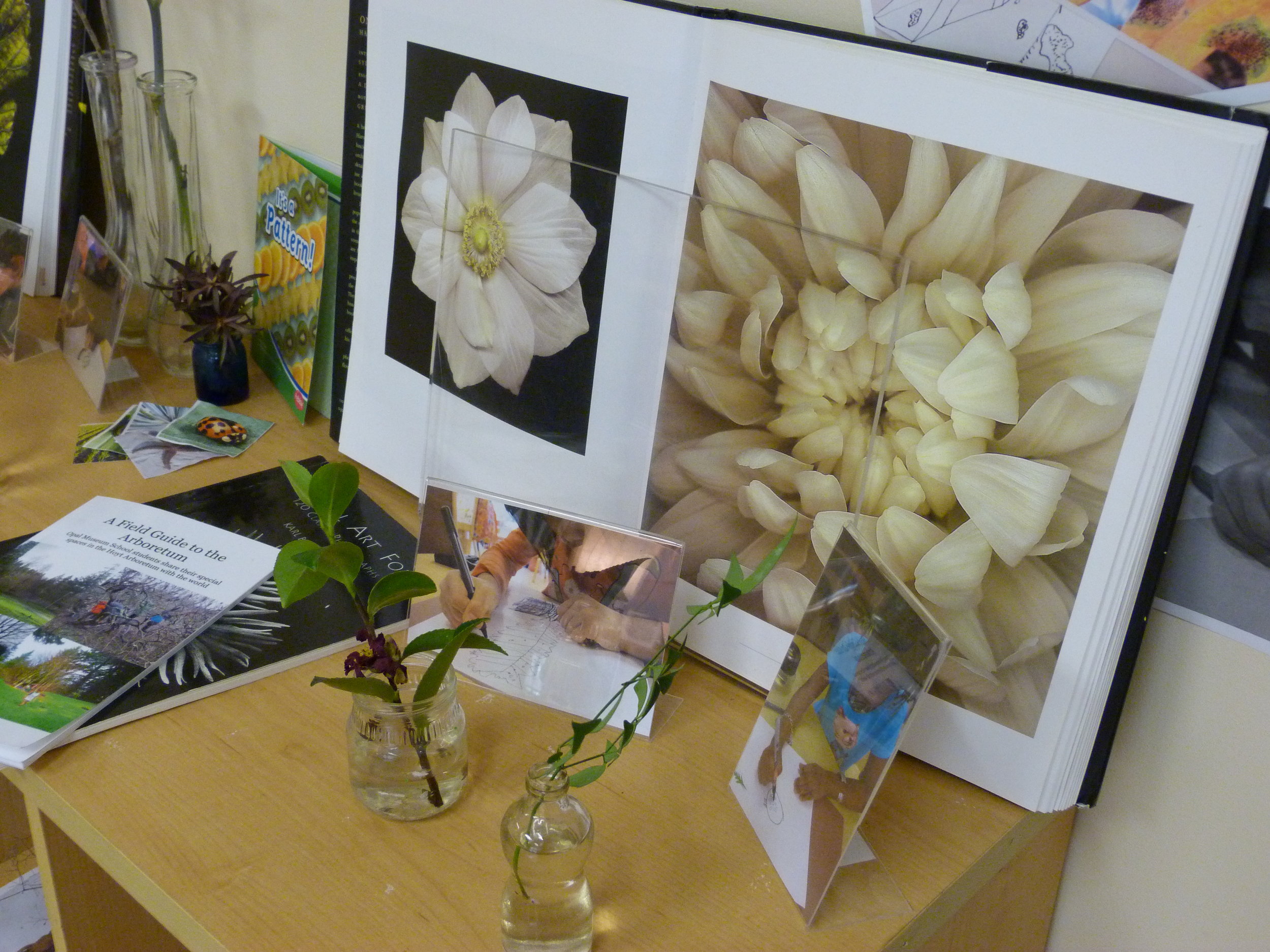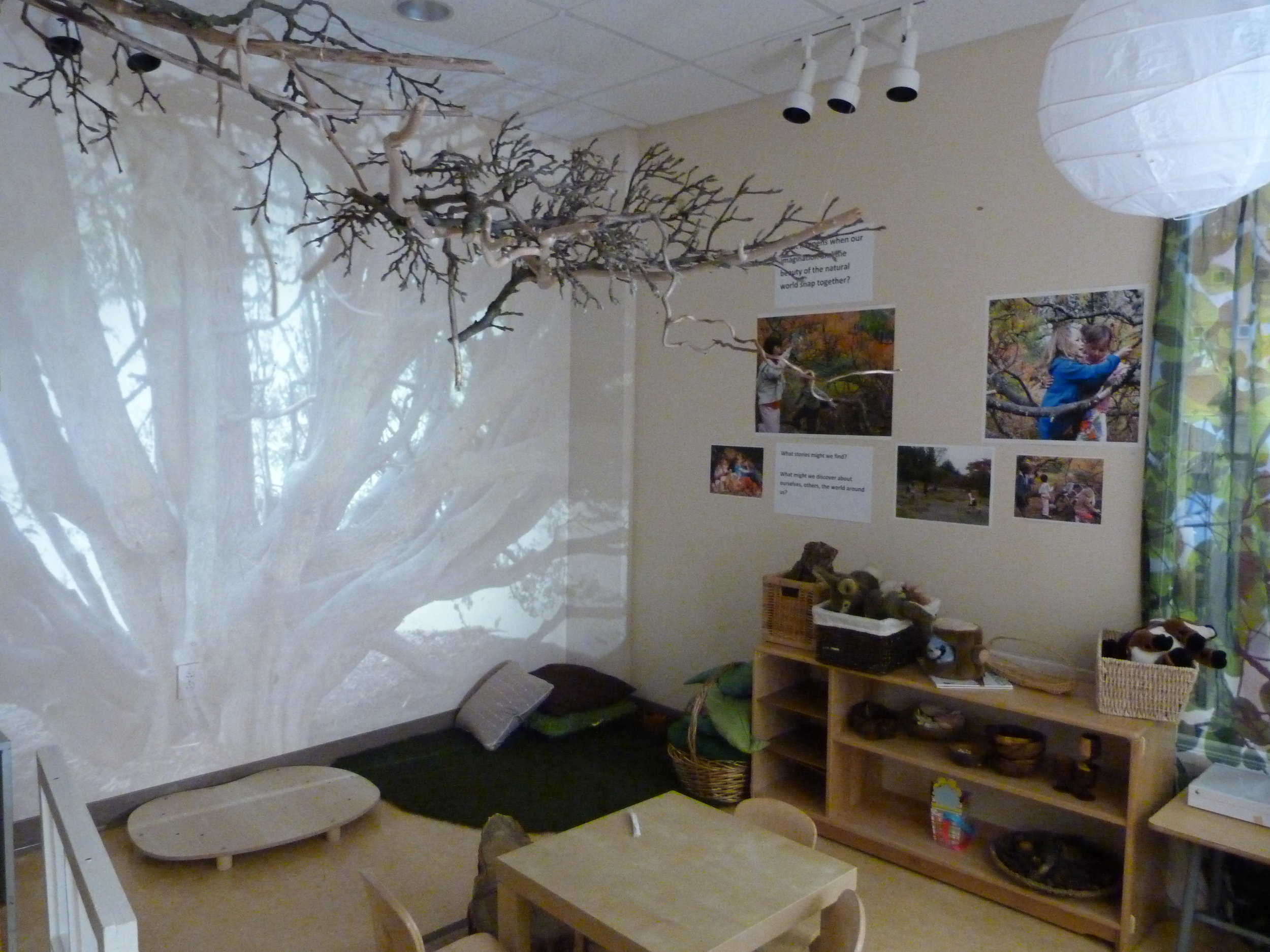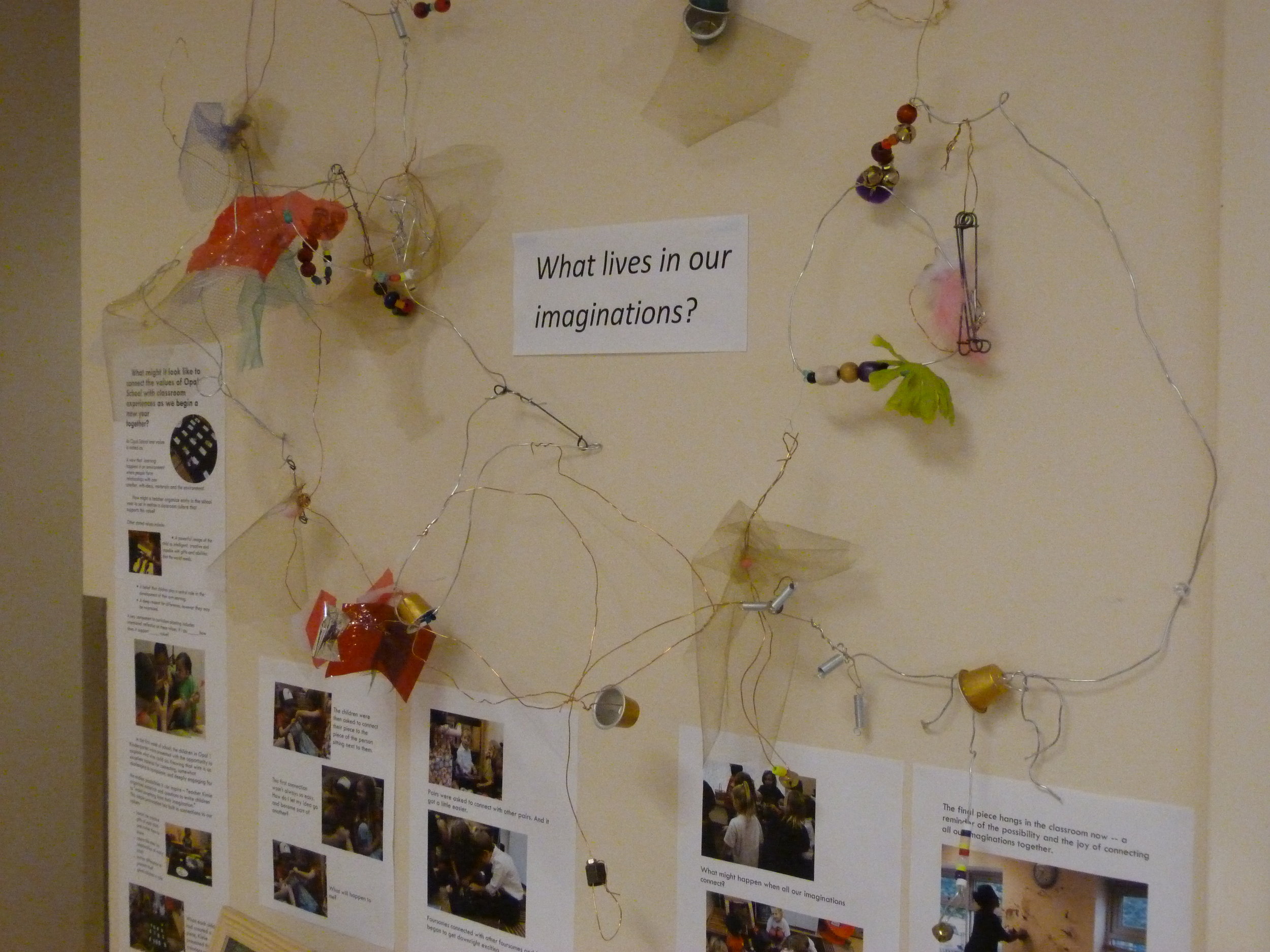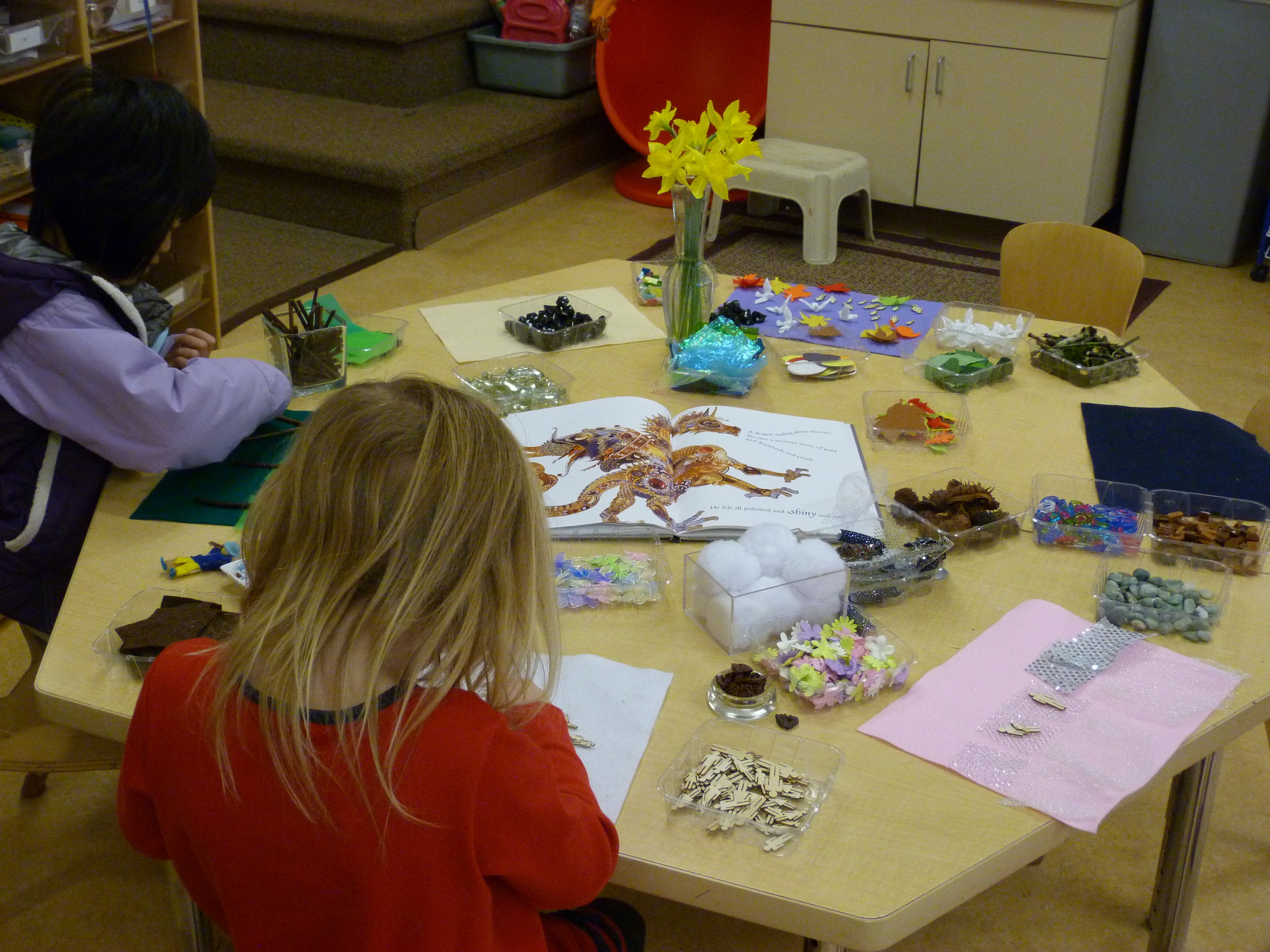 This is one of those periods when time passes too quickly! Travel for work, travel for pleasure, travel in spring, moving, changing, Louise still healing, time passing. Yesterday we realized that we had not written a blog post since mid March! And now, it is the end of April. So, here we are, checking in, showing up again with plans to keep it up.
These two weeks, we are back on our home turf, in St. Louis, Ashley working with The St. Michael School (SMS), and Louise working with Maplewood Richmond Heights (MRH) elementary school. Ashley continues to work with the SMS faculty on composing student work into books in an iBook format. Louise is working on composing a book that is a guide to the work at MRH elementary entitled, School as Museum: A Contructivist Approach to Learning, with the MRH faculty and administration and former superintendent, Linda Henke. This book is a guide to the practice at MRH elementary for the staff, but also for interested educators. We hope that it too, will be published in iBook form.
This is one of those periods when time passes too quickly! Travel for work, travel for pleasure, travel in spring, moving, changing, Louise still healing, time passing. Yesterday we realized that we had not written a blog post since mid March! And now, it is the end of April. So, here we are, checking in, showing up again with plans to keep it up.
These two weeks, we are back on our home turf, in St. Louis, Ashley working with The St. Michael School (SMS), and Louise working with Maplewood Richmond Heights (MRH) elementary school. Ashley continues to work with the SMS faculty on composing student work into books in an iBook format. Louise is working on composing a book that is a guide to the work at MRH elementary entitled, School as Museum: A Contructivist Approach to Learning, with the MRH faculty and administration and former superintendent, Linda Henke. This book is a guide to the practice at MRH elementary for the staff, but also for interested educators. We hope that it too, will be published in iBook form.
One of the chapters is entitled, "Twenty First Century Learning Processes: A Whole New Mind in Action." It draws on the work of Daniel Pink and shows how what he calls the six senses, (we decided to refer to them as learning processes), are an integral part of learning at MRH elementary school. We realized that when it comes to play, which is one of the six senses or learning processes, Opal School is a great resource. In the last blog post, that was co-written by Louise and Ena Shelley, Dean of the College of Education at Butler Univeristy, Louise wrote that she would continue to reflect and write about the week at Opal when Dean Shelley and Louise co-taught a course with the Opal staff. Play is a good place to pick up that promise. A year ago or so, Susan MacKay, Director of the Museum Center for Learning, authored a book that comes with a CD entitled, What About Play? You can order it from The Portland Children's Museum. We highly recommend it.
The following is an excerpt from the section on play in the guide that we are working on for MRH elementary school.
Over the last years, we have been inspired by the work of the Opal School of the Portland Children’s Museum in Portland, Oregon. Opal School is a charter school that works in collaboration with the Portland Children’s Museum and is housed in the museum. The relationship between these institutions provides one model for a close link between school and museum that intrigues us. We are influenced in many ways by Opal and one of the most helpful is their extensive work on what they call “playful inquiry.” This way of learning is palpable throughout the school and the museum and invites visitors to see that “play is an attitude and stance toward learning and toward life that leaves one open, curious, joyful and determined.” Many of the resources that we have learned from and that we reference here are collected from the writings of Susan MacKay, Director of the Museum Center for Learning.
Susan MacKay writes,
“In playful inquiry, adults offer provocations such as open-ended questions, intriguing dilemmas, inspiring environments, engaging materials and loose parts for children to explore. Adults give support through observing, listening, encouraging, reflecting and dialogue.
Playful inquiry is an open-ended and joyful exploration and a flexible process that welcomes elements of surprise. The learner’s mind is open and eager to learn. In play, our brain develops agility and fluid mental processing. In play, the brain works in a state of relaxed alertness—comfortable, engaged, and curious. Through playful inquiry, children develop relationships with their world and find a meaningful place for themselves within it.”
“Play is like fertilizer for brain growth. It’s crazy not to use it.” writes Stuart Brown, author of Play: How It Shapes the Brain, Opens the Imagination, and Invigorates the Soul. Brown is founder of the National Institute for Play, whose purpose is to translate the growing body or research on the critical place of play in learning, health and emotional intelligence.
"The opposite of play is not work. It’s depression. (Pink, 2005).”



